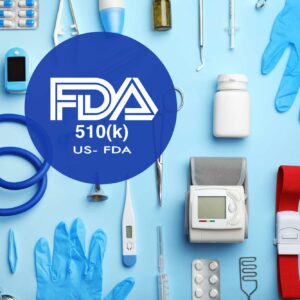Late last week, FDA announced that it completed analytical testing of an additional dietary supplement product which has similarly tested positive for yellow oleander. This comes after FDA’s ongoing analysis has determined that certain dietary supplements labeled as tejocote (Crataegus Mexicana) root were tested and found to be substituted, and adulterated, with yellow oleander (Cascabela thevetia), a flowering plant that is native to Mexico and Central America and known for its toxic properties. In other words, the tested products that were labeled as tejocote or Brazil seed are actually wholly substituted toxic yellow oleander, an all yellow that we only loved in the Coldplay tune.
While yellow oleander has been used in traditional medicine for its purported therapeutic effects, ingestion of the poisonous substance can cause severe health complications including neurologic, gastrointestinal and cardiovascular adverse health effects that may be severe or even fatal, particularly for vulnerable populations such as children, pregnant women, and individuals with pre-existing medical conditions. Symptoms may include nausea, vomiting, dizziness, diarrhea, abdominal pain, cardiac changes, dysrhythmia and more. The presence of yellow oleander in dietary supplements, therefore, poses a significant risk to consumers, especially considering the lack of proper labeling or warning about its inclusion.
Expectedly, FDA’s alarming discoveries regarding the presence of yellow oleander in various dietary supplements has sparked significant concern among consumers and regulatory bodies alike, prompting widespread recalls and raising questions about the safety and integrity of dietary supplement products, including quality control measures and regulatory oversight within the industry. The revelation underscores the need for stricter regulations and better enforcement to ensure the safety and efficacy of dietary supplements.
The yellow oleander controversy also underscores the importance of transparency and accurate labeling in the dietary supplement industry. Consumers have the right to know what they are ingesting and should be able to make informed decisions about their health. Proper labeling and clear identification of ingredients are essential to ensuring consumer safety and preventing potentially harmful exposures.
In light of the FDA’s findings, businesses operating in the dietary supplement industry must prioritize compliance with regulatory requirements and quality assurance standards. Confirming and committing to product safety and integrity throughout the manufacturing and distribution, process of dietary supplements will not only ensure regulatory compliance, but significantly, consumer confidence. To comply with regulatory obligations and mitigate the risk of contamination or adulteration, businesses should implement robust quality control measures throughout the supply chain. This includes thorough ingredient testing, supplier verification, and adherence to good manufacturing practices (GMPs). Companies should also invest in comprehensive labeling practices to accurately disclose all ingredients and potential allergens present in their products. In addition to regulatory compliance, businesses must prioritize transparency and accountability in their operations. This includes promptly addressing any concerns or reports of adverse effects associated with their products and cooperating fully with regulatory agencies to investigate and resolve issues.
The FDA’s findings of yellow oleander in dietary supplements serves as a wake-up call for the industry, highlighting the need for enhanced regulatory oversight and improved quality control measures. The implications of this controversy extend beyond regulatory compliance, impacting public health, consumer trust, and business integrity. Moving forward, businesses must take proactive steps to ensure the safety and transparency of their products, prioritizing compliance with regulatory requirements and ethical standards. By upholding rigorous quality assurance practices and fostering a culture of accountability, companies can help rebuild trust with consumers, safeguard the health and well-being of the public and continue business expansion.
As of January 26, 2024, the FDA tested as many as 18 samples, and found them to contain yellow oleander. The newest confirmed product, Green ELV Nutrition brand Elv Control Herbal Supplement 90 capsules by World Green Nutrition/Alipotec has been added. A complete and current list is provided below for reference.
For additional questions on FDA regulatory compliance and enforcement matters, please contact us at info@garg-law.com.


